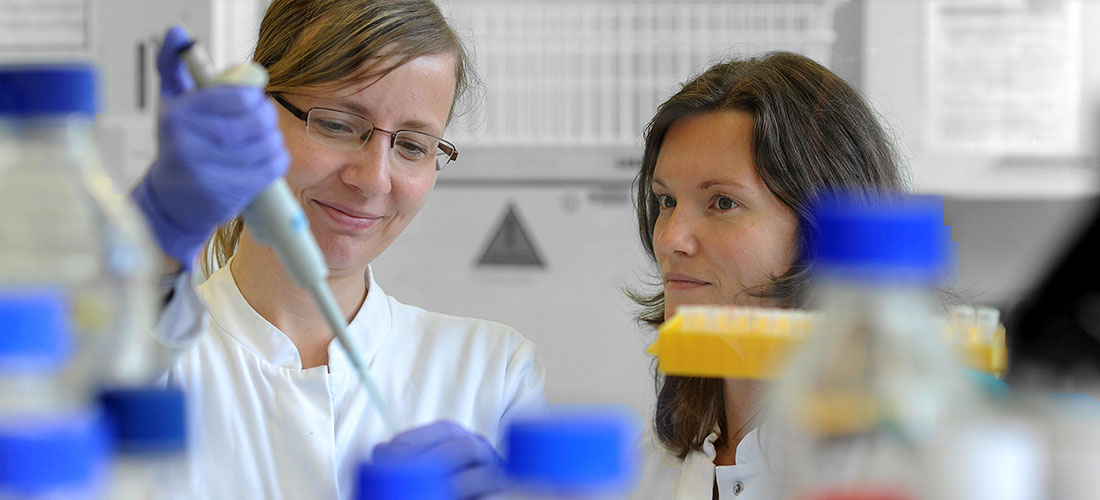B05: Plasma proteome and metabolome signatures to better understand, monitor and predict neuroblastoma evolution
Single biopsies fail to reflect intratumor heterogeneity and tumor evolution. We previously demonstrated that circulating tumor DNA (ctDNA) detection and marker surveillance in biofluids from patients with MYCN-amplified and/or ALK mutated high-risk neuroblastoma provides molecular resolution of spatial and temporal disease activity superior to tissue-based diagnostics in individual patients. We hypothesize that proteomic and metabolomic characterization of the longitudinally collected blood and bone marrow plasma samples will complement these ctDNA data to provide a richer, more comprehensive understanding of neuroblastoma evolution that particularly includes indicators for immune response or angiogenic effects in the patient during treatment. Specifically, protein and metabolite biomarker patterns in liquid biopsies may mirror neuroblastoma evolution directly or indirectly through triggered host-mediated local and systemic responses that facilitate or support therapy response, resistance or disease progression. How the disease and its host adapt to various biological situations may help us to develop specific noninvasive predictive biomarker panels composed of different tumor surrogates that define points in disease evolution. We will implement innovative ultrahigh-throughput proteomics technologies and metabolomics to characterize matched blood and tumor samples from genetically engineered mouse models, in which high-level MYCN alone or combined with mutant ALK drive neuroblastic tumor development and evolution (Task 1). Animal models that closely reflect the human disease and for which ctDNA-based marker surveillance data exist will reveal which protein and metabolite changes in biofluids during neuroblastoma evolution are oncogene-specific. Task 2 will analyze complementary blood and tumor samples from patients with high-risk neuroblastoma employing the same proteomics and metabolomics techniques. The sample cohort will be representative for all genetic subgroups of high-risk neuroblastoma, with a particular focus on the difficult to treat MYCN-amplified and ALK-mutant tumors. Task 3 will leverage mathematical and bioinformatics expertise to combine our proteomics and metabolomics data with existing (epi)genomic data from tumor-derived circulating DNA and corresponding tumor samples (from the CRC). Combining these data will illuminate interactions across the entire omics networks in the cell, from epigenome to metabolome, and identify potential metabolite/protein markers or signatures in liquid biopsies that can be clinically exploited for noninvasive disease monitoring. The validity of biomarkers or biomarker signatures will be assessed based on their potential to predict disease progression and outcome in a control cohort (Task 4). In further CRC1588 funding periods, we plan to pursue development of diagnostic kits applicable in the clinical routine for the targeted detection of validated protein/metabolite markers/signatures in biofluids from patients with high-risk neuroblastoma.
PhD positions and place of work: 2
2 wet-lab with interest in bioinformatics (PI Markus Ralser and PI Hewig Deubzer, Charité Berlin)



